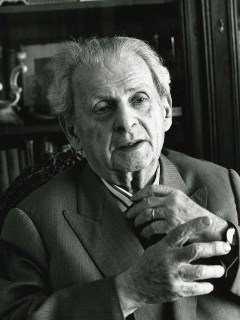
Publication details
Verlag: Springer
Ort: Berlin
Jahr: 1988
Pages: 257-272
Reihe: Phaenomenologica
ISBN (Hardback): 9789401077620
Volle Referenz:
, "The silent anarchic world of the evil genius", in: The Collegium Phaenomenologicum, the first ten years, Berlin, Springer, 1988


The silent anarchic world of the evil genius
pp. 257-272
in: John Sallis, Giuseppina Moneta, Jacques Taminiaux (eds), The Collegium Phaenomenologicum, the first ten years, Berlin, Springer, 1988Abstrakt
Husserl and Heidegger are, more than any others, the thinkers with whom Levinas is in constant dialogue. From the late 1920's when he attended their lectures in Freiburg, through the 1930's when he more than anyone else was responsible for introducing their thinking into France, until the present day when it seems as if it is still virtually impossible for him to write a philosophical essay without referring to one or other of them, Husserl and Heidegger provide Levinas with his starting-point. But it is a starting-point with which he never remains content so that it is invoked only as a basis for saying more. The relation with the Other is presented always as "beyond intentionality' or "otherwise than being.' When it comes to the task of giving a more positive account, Levinas' favourite recourse is to turn to Descartes. It was above all Descartes who gave Levinas his own voice with which to show what Husserl and Heidegger and indeed, if we are believe to him, the whole tradition of Western ontology from Parmenides on failed to recognise and preserve.1 This is already clear from the very title of Totality and Infinity. Rosenzweig may have provided the critique of totality, a critique to which Husserl and Heidegger were assimilated, but it was from Descartes that Levinas borrowed the word by which he sought to think and say transcendence and thus rupture this totality.
Cited authors
Publication details
Verlag: Springer
Ort: Berlin
Jahr: 1988
Pages: 257-272
Reihe: Phaenomenologica
ISBN (Hardback): 9789401077620
Volle Referenz:
, "The silent anarchic world of the evil genius", in: The Collegium Phaenomenologicum, the first ten years, Berlin, Springer, 1988




